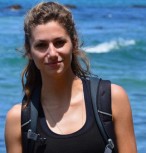DNA reveals the past and future of coral reefs
New DNA techniques are being used to understand how coral reacted to the end of the last ice age in order to better predict how they will cope with current changes to the climate. James Cook Univer

From 2005 to 2022, the main node of the ARC Centre of Excellence for Coral Reef Studies was headquartered at James Cook University in Townsville, Queensland (Australia)








Abstract: Pair bonding is defined as a preferential, pro-social, and enduring affiliation between two individuals, and is known to be widespread among birds and mammals, including primates. In these taxa, pair bonding has been shown to be linked to several fitness-associated social processes, principally mate acquisition/defense and cooperative parental care. Mechanistically, the neurological basis of pair bonding in birds and mammals is also reasonably well established. Specifically, pharmacological experimentation and neurological comparative analyses have revealed fundamental roles for the neurochemicals oxytocin, arginine vasopressin, dopamine, and µ-opioids, their conjugate receptor-expressing neurons, and their targeted brain regions, in the expression of pair bond traits. In general, this neurobiological network is hypothesized to govern pair bonding through a cognitive process known as “conditioned partner preference”. As is the case for mammals and birds; amphibians, reptiles and fishes also form pair bonds. However, the occurrence, and adaptive significance, and neurobiology of pair bonding in these taxa currently remains unclear. This knowledge gap limits our capacity to formalize and test general evolutionary-developmental theories for pair bonding in vertebrates. Using butterflyfishes as a model system, Jess will begin by quantifying pair bonding characters (i.e., partner preference, pro-sociality, and permanency) across 6 species in order to determine the extent to which they are strongly vs. weakly pair bonded. Then, she will use the strong ‘pair bonders’ as model species for examining whether the permanency of a pair bond contributes to its ecological benefits (i.e., territory defense and foraging efficiency). Next, pharmacological experiments will be used to determine whether candidate neuron receptors (i.e., the isotocin, arginine vasotocin, dopamine, and opioid receptors) promote pair bonding. In the final chapter, strongly and weakly bonding species will be used to comparatively examine how candidate neuron receptors promote pair bonding (i.e., by identifying the brain regions that they target).”
Biography: Having been born and raised in Wisconsin, USA, Jess had not become enlightened (i.e. seen the ocean) until she was 17 years-old, during a vacation to North Carolina. With much bewilderment, she realized there was more meaning to life than Miller Light beer and ridiculously good cheese. Exchanging her cheese head for fins, she embarked upon her journey toward becoming a marine biologist. From 2008-2010, she focused her research on the effects of ocean acidification and increased sea surface temperatures on the behaviour of marine invertebrates and fishes. Today, she is pursuing a PhD, with a focus on understanding the ecological and neurobiological basis of pair bonding in a family of coral reef fish, the Chaetodontidae (butterflyfishes). Her PhD supervisors are Dr. Stefan Walker and Prof. Morgan Pratchett, from ARC CoE for Coral reef Studies and Dr. Lauren O’Connell, from Harvard University.
New DNA techniques are being used to understand how coral reacted to the end of the last ice age in order to better predict how they will cope with current changes to the climate. James Cook Univer
A new study on the effects of climate change in five tropical countries has found fisheries are in more trouble than agriculture, and poor people are in the most danger. Distinguished Profess
James Cook University researchers have found brightly coloured fish are becoming increasingly rare as coral declines, with the phenomenon likely to get worse in the future. Christopher Hemingson, a
Researchers working with stakeholders in the Great Barrier Reef region have come up with ideas on how groups responsible for looking after the reef can operate more effectively when the next bleaching
Abstract: As marine species adapt to climate change, their heat tolerance will likely be under strong selection. Individual variation in heat tolerance and its heritability underpin the potential fo
Abstract: The Reef Ecology Lab in KAUST’s Red Sea Research Center explores many aspects of movement ecology of marine organisms, ranging from adult migrations to intergenerational larval dispersal
Abstract: Macroalgal meadows are a prominent, yet often maligned component of the tropical seascape. Our work at Ningaloo reef in WA demonstrate that canopy forming macroalgae provide habitat for ad
Abstract: Sharks are generally perceived as strong and fearsome animals. With fossils dating back at least 420 million years, sharks are not only majestic top predators but they also outlived dinosa
Abstract: Connectivity plays a vital role in many ecosystems through its effects on fundamental ecological and evolutionary processes. Its consequences for populations and metapopulations have been
Abstract: Evolution of many eukaryotic organisms is affected by interactions with microbes. Microbial symbioses can ultimately reflect host’s diet, habitat range, and even body shape. However, how
Abstract: The past few years have seen unprecedented coral bleaching and mortality on the Great Barrier Reef (GBR) but the consequences of this on biodiversity are not yet known. This talk will expl